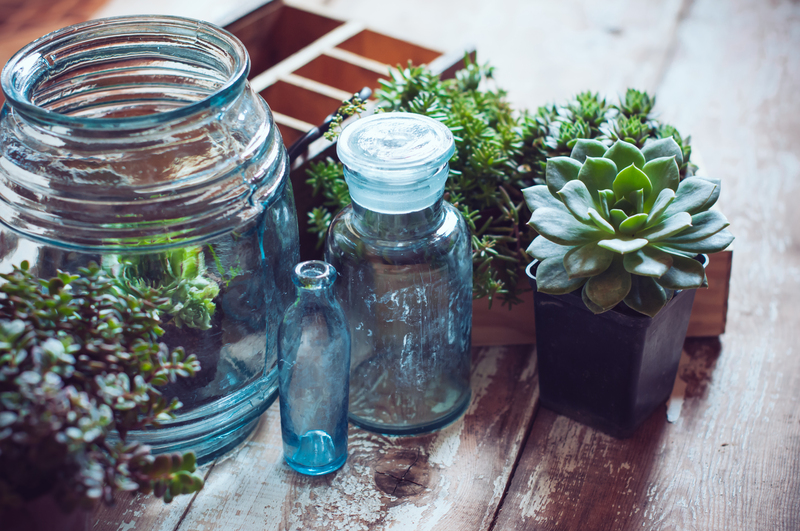
Unlock The Secrets of Successful Home Recycling: A Comprehensive Guide
Unlock the secrets of successful home recycling and transform your household waste into a positive impact on the environment. With the world becoming more conscious of climate change and pollution, practicing effective home recycling is no longer a luxury but a necessity. This in-depth article will show you step-by-step how to recycle at home efficiently, empowering you with tips and tricks to make your recycling routine easy, fun, and meaningful.
Why Home Recycling Matters
Home recycling is more than simply tossing items into a blue bin. It's a powerful way to contribute to a sustainable tomorrow. By practicing smart and effective recycling at home, you directly reduce waste sent to landfills, conserve natural resources, and help lower greenhouse gas emissions.
Recent studies estimate that recycling household materials can reduce carbon emissions by up to 30% per person annually. Additionally, many municipalities save money on waste management thanks to increased home recycling diligence.
- Conserves natural resources.
- Reduces pollution and greenhouse gases.
- Helps stem the tide of climate change.
- Strengthens local recycling programs and creates green jobs.
What Can You Recycle at Home?
Unlocking the secrets of home recycling starts with knowledge--understanding which materials you can and cannot recycle in your area. While recycling rules can vary, here are the most commonly accepted items:
- Paper: Newspapers, magazines, office paper, junk mail, cardboard (flatten first!)
- Plastics: Most bottles and containers labeled #1 (PETE) and #2 (HDPE). Check local guidelines for other numbers.
- Glass: Clear, brown, and green glass bottles and jars.
- Metals: Aluminum cans (like soda cans), tin/steel cans (like canned food containers).
Not all items are accepted in curbside programs! Avoid recycling plastic bags, polystyrene foam (Styrofoam), and greasy pizza boxes unless specifically noted in your local rules.
Special Materials and Drop-Offs
- Electronics and Batteries: Most curbside programs don't accept batteries or e-waste. Special drop-off days or centers handle these.
- Hazardous Materials: Paints, chemicals, and fluorescent bulbs require special attention and never belong in home recycling bins.
Check with your city's waste management website for up-to-date local recycling guidelines.
Setting Up an Effective Home Recycling System
One of the crucial steps to unlocking the secrets of successful home recycling is establishing a simple, functional, and visible home recycling system. Here's how to organize your household for maximum recycling success:
1. Gather The Right Bins
- Choose color-coded bins: Label each for Paper, Plastic, Glass, and Metal, or use the standard blue for recycling. This reduces confusion and helps children and guests participate easily.
- Have enough bins available: Place bins not just in the kitchen, but bathrooms, home offices, and near entry doors.
2. Make Sorting Simple
- Display a recycling guide: Hang a chart showing what's accepted in your area on your fridge or above the bins. This quick reference can prevent mistakes.
- Rinse items before recycling: Residue from food or liquids can spoil an entire batch of recyclables.
- Flatten boxes: Breaking down cardboard saves space and allows for more efficient collection.
3. Set a Schedule
- Arrange regular emptying dates: Mark your calendar or set reminders for curbside pickup days.
- Involve the household: Assign recycling tasks to different family members to teach responsibility and keep the system running smoothly.
Tips and Tricks for Successful Recycling
Now that your system is set up, it's time to unlock advanced secrets for home recycling success:
- Read labels carefully: Look for recycling codes and information on packaging. Familiarize yourself with symbols like the numbers inside the recycling triangle on plastics.
- Reuse before you recycle: Upcycle jars, containers, and bags for household storage or crafts.
- Go paperless where possible: Reduce the influx of junk mail with the National Do Not Mail List, and switch to electronic billing.
- Compost food scraps: While not recycling in the classic sense, composting significantly reduces landfill waste and produces rich soil for your garden!
- Buy recycled products: Support the recycling cycle by purchasing goods made with recycled materials--look for labels such as "post-consumer content."
Fun Fact:
Did you know? Recycling just 10 plastic bottles saves enough energy to power a laptop for over 25 hours!
Common Recycling Mistakes to Avoid
It's easy to make mistakes when learning the secrets of successful home recycling. Here are the most frequent mistakes--and how to avoid them:
- Wishful recycling: Placing non-recyclable items in the bin "just in case." Stick to materials you know are collected locally.
- Bagging recyclables: Most programs require recycling to be placed directly in bins, not tied up in plastic bags.
- Ignoring contamination: Food, grease, and liquids can spoil entire loads of recycling. Rinse and dry items before tossing them in the bin.
- Failing to check local rules: What's accepted in one city may not be in another. When in doubt, look it up!
Advanced Home Recycling Secrets Revealed
Once you're comfortable with the basics, it's time to unlock the next level of home recycling success! These advanced tips can help you supercharge your recycling power:
- Explore Terracycle Programs: Items like toothpaste tubes, pens, and snack wrappers can be mailed in to recycling specialists like Terracycle.
- Set up a home battery drop-off spot: Collect batteries in a safe container and find a local retailer or event for proper recycling.
- Host a community recycling drive: Work with neighbors to collect hard-to-recycle items--bring everyone together for a greener neighborhood.
- Join local repair cafes: Fix small appliances for reuse rather than recycling--repair is sometimes better than recycling!
- Master micro-recycling: Get creative! Use bottle caps and small plastics for art or DIY projects.
Bonus Secret
Apps can help! Download recycling apps like iRecycle or Recycle Coach to scan barcodes and instantly check how to dispose of products.
Teaching Your Family to Recycle
A critical secret to sustainable success is to make recycling at home a family habit. Here's how to involve everyone:
- Educate with games: Make sorting a fun activity for children with color-coded bins and reward stickers.
- Lead by example: Practice what you preach by modeling proper recycling habits daily.
- Share the impact: Discuss the benefits and show kids how their efforts help animals and nature worldwide.
Community Connection
Organize a neighborhood recycling challenge or school poster contest to build excitement and spread recycling wisdom beyond your own household!
Making Your Recycling Even Greener
Take your recycling expertise to the next level with these eco-friendly hacks:
- Avoid single-use plastics: Choose reusable water bottles and bags whenever possible.
- Refill containers: Many stores now offer refill stations for cleaning supplies and soaps--further reducing waste!
- Buy in bulk: Less packaging means less to recycle and a smaller waste footprint.
- Consider sharing economy platforms: Swap, lend, or borrow rather than buying new, cutting down on both waste and consumption.
Eco-Conscious Shopping Secret
When shopping, look for products with minimal, recyclable, or compostable packaging for true home recycling excellence.
Home Recycling FAQs
- How do I know what my city accepts for home recycling?
Check your municipality's website or recycling program brochure for accepted items and schedules. - Should I rinse my recyclables?
Yes! Rinse containers to remove food or drink residue, as contamination can spoil entire batches of recycling. - Can I recycle pizza boxes?
Only if they are free of grease and leftover food. Otherwise, compost the box or dispose of it in regular trash. - What should I do with plastic bags?
Many grocery stores have dedicated drop-off bins for plastic bags; do not put them in curbside recycling. - How can I reduce recycling mistakes?
Stay informed, display a cheat sheet above your bins, and when in doubt--look it up online!
Final Thoughts: Embrace the Secrets of Home Recycling
Unlocking the secrets of successful home recycling isn't about perfection--it's about progress. By making small, smart changes, you and your family can turn everyday habits into a lifetime of positive impact. From setting up a foolproof system to teaching loved ones the value of sustainable living, every action counts!
Remember:
- Recycling starts at home with thoughtful preparation and dedication.
- Knowledge and routine make it easier to get everyone involved.
- Even the smallest acts create a greener, cleaner world for tomorrow.
Have more questions or a recycling tip to share? Join the conversation below and help others unlock the secrets of successful home recycling!
